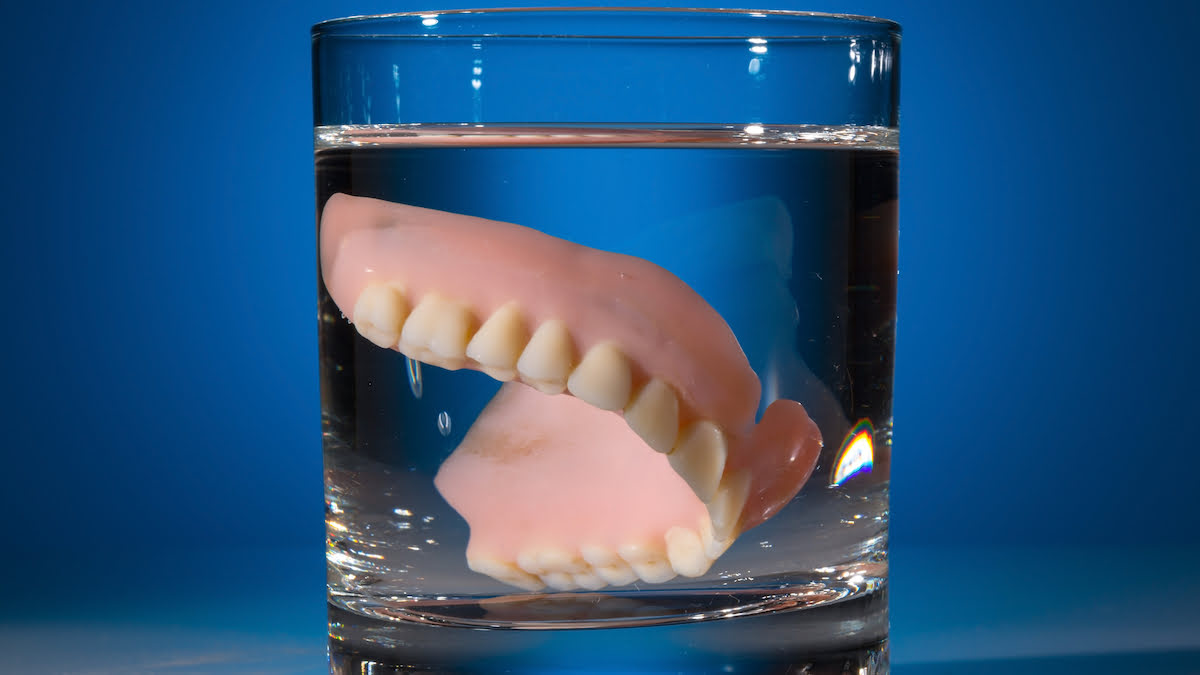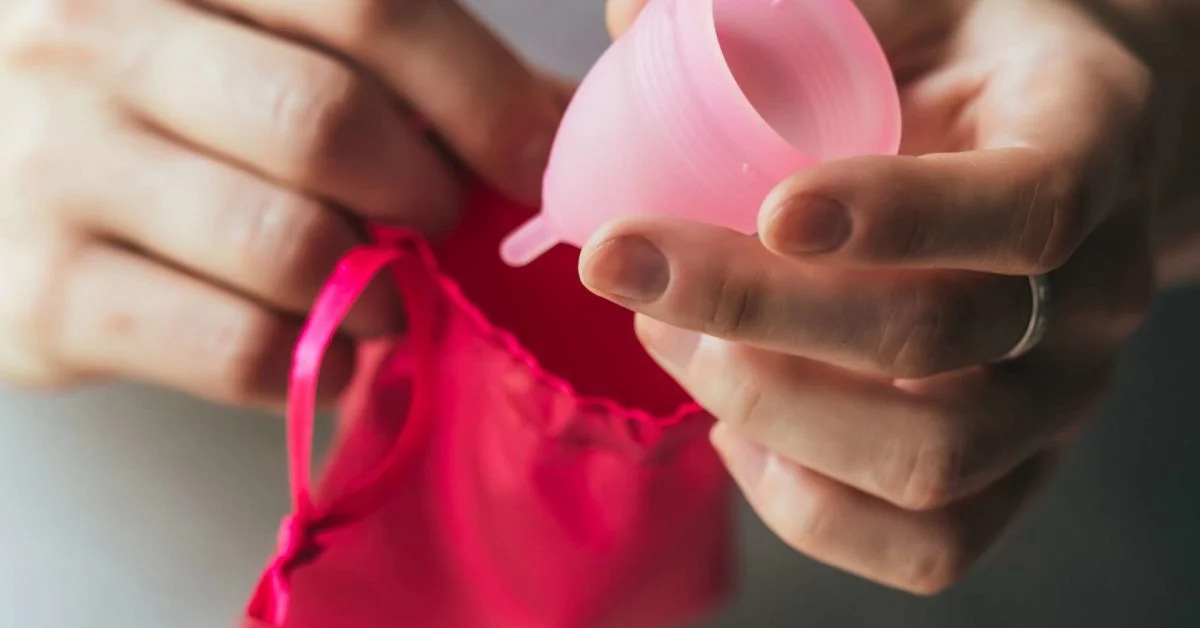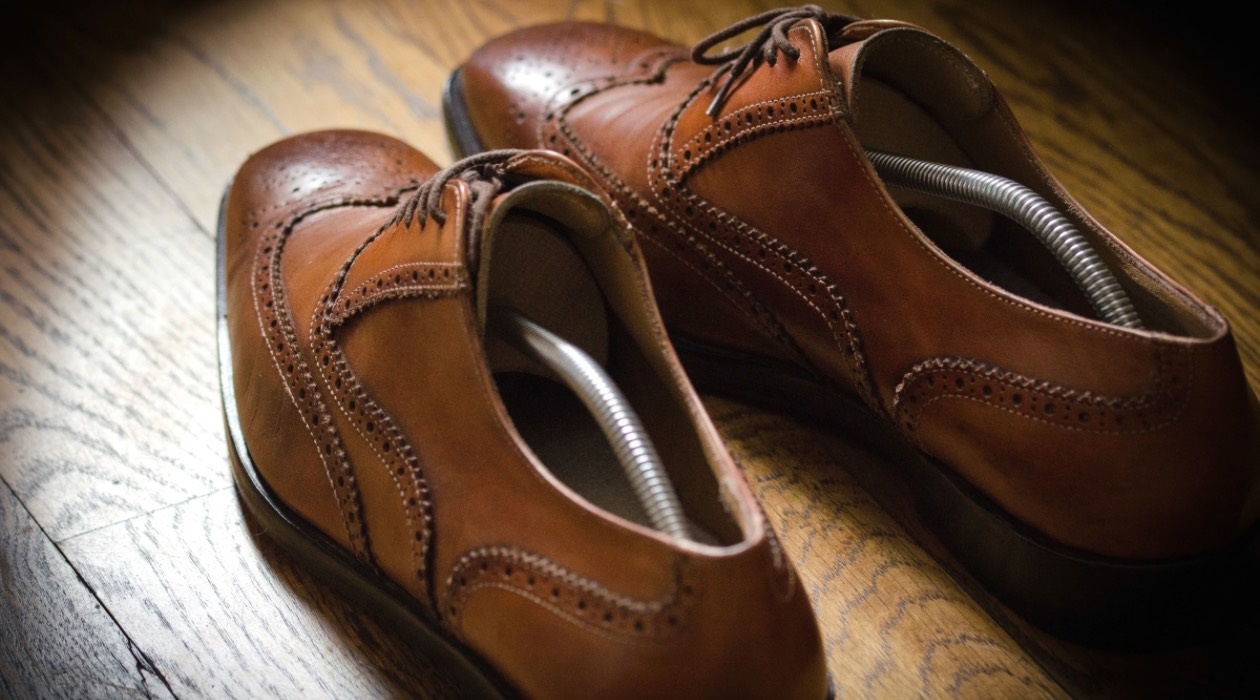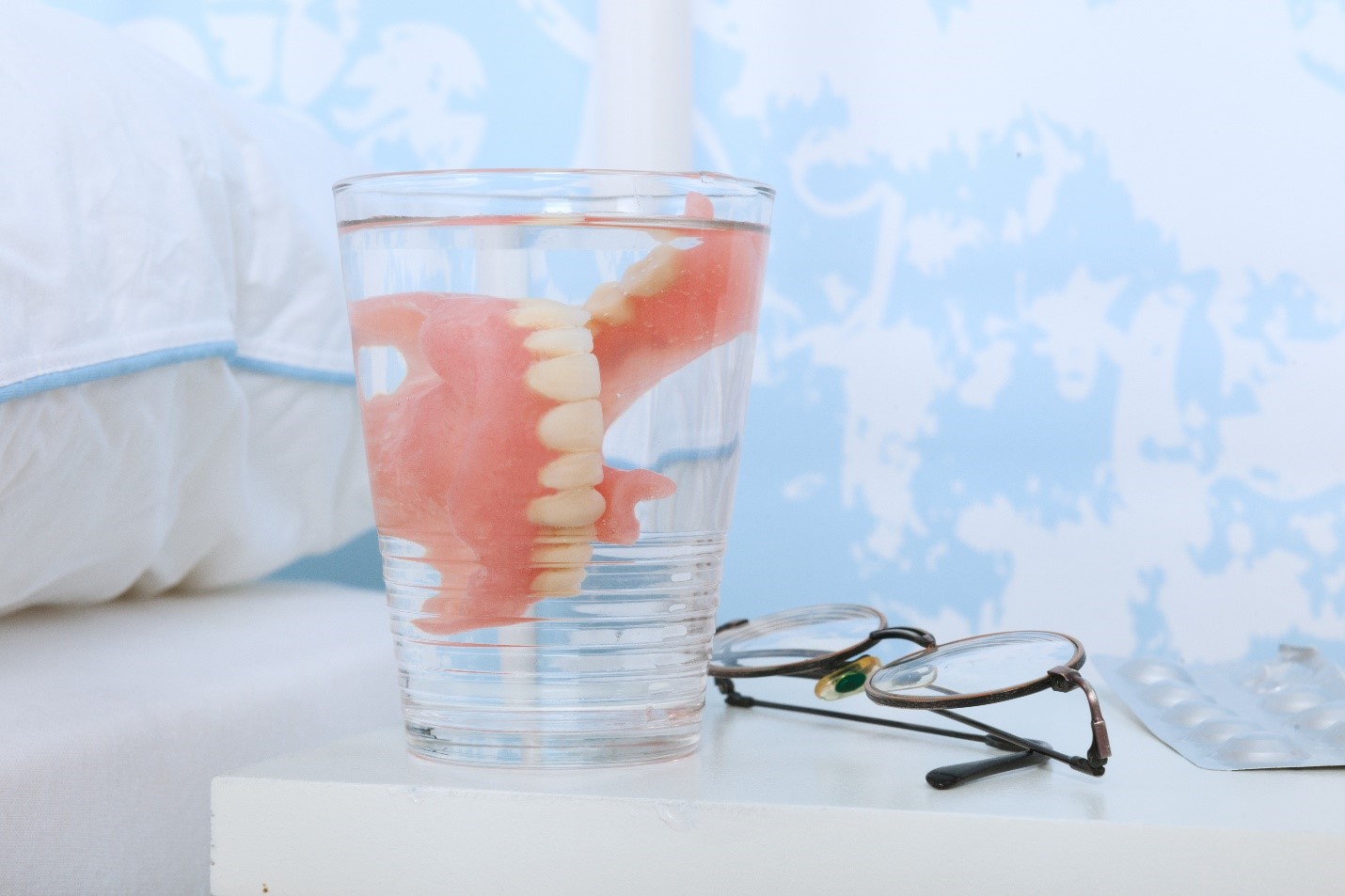

Articles
How To Store Dentures For Long Period Of Time
Modified: August 16, 2024
Learn effective ways to store dentures for extended periods of time. Read our comprehensive articles for tips and techniques.
(Many of the links in this article redirect to a specific reviewed product. Your purchase of these products through affiliate links helps to generate commission for Storables.com, at no extra cost. Learn more)
Introduction
When it comes to denture care, proper storage is crucial for maintaining their shape, integrity, and hygiene over an extended period of time. Whether you wear dentures on a daily basis or only use them occasionally, knowing how to store dentures correctly is essential to protect your investment and ensure they stay in good condition.
In this article, we will explore the importance of proper denture storage, discuss how to choose the right denture storage container, provide tips for cleaning and preparing dentures for storage, and highlight common mistakes to avoid. Additionally, we will touch upon the importance of maintenance and regular check-ups for stored dentures to ensure their longevity and functionality.
By following the guidelines and suggestions outlined in this article, you can rest assured that your dentures will remain safe, clean, and ready for use whenever you need them.
Key Takeaways:
- Proper denture storage is crucial for maintaining shape, hygiene, and longevity. Choose a suitable container, clean and prepare dentures, and avoid common mistakes to ensure optimal care.
- Long-term denture storage requires additional care. Keep dentures moist, avoid harmful substances, and maintain regular check-ups to ensure comfort and functionality.
Read more: How To Store Shoes For Long Periods Of Time
Importance of Proper Denture Storage
Proper denture storage is essential for several reasons. First and foremost, it helps maintain the shape of your dentures. Dentures are designed specifically to fit your mouth, and if they are not stored properly, they can warp or lose their shape, leading to discomfort and potential oral health issues.
In addition to shape preservation, proper storage prevents damage to your dentures. When not in use, dentures can be fragile and prone to breakage or cracks. By storing them correctly, you minimize the risk of accidental damage and extend the lifespan of your dentures.
Proper denture storage also plays a crucial role in maintaining hygiene. Dentures can harbor bacteria and food particles if not cleaned and stored correctly. By storing your dentures in a clean and hygienic container, you reduce the chances of bacterial growth and minimize the risk of oral infections.
Another important aspect of proper denture storage is protecting them from environmental factors. Exposure to extreme temperatures, moisture, and sunlight can all have detrimental effects on your dentures. By storing them in a suitable container, you shield them from these potential hazards and prevent any adverse effects.
Furthermore, proper storage allows for easy and convenient accessibility. When you know exactly where your dentures are stored and how to retrieve them, you save valuable time and avoid the frustration of searching for misplaced dentures.
Overall, proper denture storage is crucial for maintaining the integrity, shape, hygiene, and accessibility of your dentures. By following proper storage practices, you can ensure that your dentures stay in excellent condition and provide you with optimal function and comfort.
Choosing the Right Denture Storage Container
When it comes to selecting a denture storage container, there are a few factors to consider. Here are some essential features to look for:
1. Size and Shape: Choose a container that can accommodate your dentures comfortably. It should be spacious enough to hold the dentures without causing any distortion or overcrowding.
2. Material: Opt for a container made of durable and non-toxic material. Common options include plastic, glass, or stainless steel. Make sure the material is easy to clean and does not retain odors or discoloration.
3. Ventilation: Look for a container that allows proper ventilation to prevent moisture buildup. Adequate ventilation helps to maintain the dryness of the dentures, which is crucial for preventing bacterial growth and preserving their integrity.
4. Secure Lid: Ensure that the container has a tight-fitting lid to keep your dentures safe and prevent any accidental damage. A secure lid also prevents dust, debris, and insects from entering and compromising the cleanliness of the dentures.
5. Accessibility: Consider a container with easy-to-open features, such as a hinge or a snap-lock mechanism. This will make it convenient for you to access your dentures whenever you need them.
6. Travel-friendly: If you frequently travel or need to carry your dentures with you, opt for a container that is portable and compact. Look for one that fits easily into your bag or purse, ensuring that your dentures remain protected even when you’re on the go.
7. Separate Compartments: Some storage containers offer separate compartments for each denture, which helps prevent them from rubbing against each other and potentially causing damage. This is especially beneficial if you have partial dentures.
8. Labeling: Consider labeling your denture storage container with your name or any other identification to avoid confusion, especially if you share living spaces or travel with others.
By considering these factors, you can choose a denture storage container that meets your specific needs and ensures the safety, cleanliness, and accessibility of your dentures.
Cleaning and Preparing Dentures for Storage
Cleaning your dentures before storing them is an essential step in maintaining their hygiene and longevity. Here’s a step-by-step guide on how to clean and prepare your dentures for storage:
1. Rinse: Begin by rinsing your dentures under running water to remove any loose debris or food particles. Use mild non-abrasive soap or denture cleaner to gently clean the dentures.
2. Brush: Use a soft-bristle denture brush or a toothbrush specifically designed for dentures to clean the surface of the dentures. Pay attention to all the nooks and crannies, including the teeth, gum areas, and any attachments or clasps.
3. Soak: After brushing, soak your dentures in a denture cleaning solution or a mixture of equal parts water and vinegar or water and baking soda. This helps to remove any stains or lingering bacteria.
4. Avoid Hot Water: It’s important to note that hot water can cause dentures to warp, so always use lukewarm or cool water for rinsing and soaking.
5. Rinse Again: After soaking, thoroughly rinse your dentures under running water to remove any residue from the cleaning solution or mixture. Ensure that there is no leftover cleaning agent on the surface of the dentures.
6. Dry Gently: Use a soft, clean towel or denture cloth to pat your dentures dry. Avoid using any harsh or rough fabrics that can cause scratches or damage.
7. Store in a Clean Container: Once your dentures are clean and dry, place them in a clean denture storage container. Avoid using tissue or paper towels as they can retain moisture and potentially harbor bacteria.
8. Leave the Container Open: To promote air circulation and prevent the growth of bacteria, leave the denture container slightly open when storing them. This allows any moisture to evaporate and helps maintain the dryness of the dentures.
9. Store in a Dry Location: Store your dentures in a cool, dry place away from direct sunlight or extreme temperatures. Excessive heat or moisture can damage the dentures or contribute to the growth of bacteria.
By following these cleaning and preparation steps, you can ensure that your dentures are thoroughly cleaned and stored in a hygienic manner, ready for use whenever you need them.
Store dentures in a clean, dry container with a lid when not in use. Keep them away from direct sunlight and heat to prevent warping. Soak them in a denture cleaning solution regularly to keep them clean and free from bacteria.
Tips for Long-Term Denture Storage
Long-term denture storage requires additional care to ensure that your dentures remain in good condition even if they are not used for an extended period of time. Here are some helpful tips for long-term denture storage:
1. Keep Them Moist: Dentures can become dry and brittle if left exposed to the air for too long. To prevent this, store your dentures in a denture soaking solution or plain water when not in use. This helps to maintain their moisture content and prevents them from drying out.
2. Avoid Soaking in Hot Water: While it’s important to keep your dentures moist, avoid using hot water to soak them. Hot water can cause the dentures to warp, leading to a poor fit and discomfort. Stick to lukewarm or cool water for soaking.
3. Clean before Storage: Before storing your dentures for a long period, make sure to clean them thoroughly. This removes any remaining debris or bacteria and helps to prevent stains and odors from developing during storage.
4. Use Denture Cleansers: Consider using denture cleansers specifically designed for long-term storage. These cleansers help to maintain the cleanliness and freshness of your dentures even during extended periods of non-use.
5. Store in a Protective Case: Invest in a denture storage case that offers proper protection against impact, dust, and other contaminants. Ensure that the case is clean and dry before placing your dentures inside.
6. Avoid Harmful Substances: Keep your dentures away from harsh chemicals, adhesive removers, or any substances that may cause damage. These include substances such as bleach, alcohol, or abrasive cleaning agents.
7. Regularly Check for Damage: Periodically inspect your stored dentures for any signs of damage such as cracks, chips, or changes in shape. If you notice any issues, consult your dentist for prompt repair or replacement.
8. Keep Them out of Reach: If you have pets or small children at home, it’s important to store your dentures in a secure location that is out of their reach. Avoid leaving them on countertops or other surfaces where they could be knocked off or damaged.
9. Maintain Regular Check-ups: Even if you are not currently wearing your dentures, it’s crucial to maintain regular check-ups with your dentist. Regular examinations ensure that your dentures remain in good condition and fit properly when you decide to use them again.
By following these tips, you can ensure that your dentures stay in optimum condition during long-term storage, providing you with a comfortable fit and excellent function when you’re ready to use them again.
Read more: How To Store Water For Long Periods Of Time
Common Mistakes to Avoid
While proper denture storage is important, it is equally essential to avoid common mistakes that can potentially damage or compromise the integrity of your dentures. Here are some common mistakes to avoid:
1. Sleeping with your dentures: It is crucial to remove your dentures before going to bed. Sleeping with dentures can lead to a variety of issues, including increased bacterial growth, discomfort, and potential damage to both your dentures and oral tissues.
2. Using improper cleaning agents: Avoid using abrasive cleaners or harsh household chemicals to clean your dentures. These can cause scratches, erosion, or discoloration. Stick to denture-specific cleaning solutions or mild soap recommended by your dentist.
3. Using hot water for soaking: As mentioned earlier, hot water can cause dentures to warp. Always use lukewarm or cool water when soaking your dentures to maintain their shape and fit.
4. Using toothpaste to clean: Toothpaste can be abrasive and damage the surface of your dentures. Instead, use a denture-specific cleaner or mild soap recommended by your dentist to clean your dentures daily.
5. Leaving dentures dry: It’s important to keep your dentures moist when they are not being worn. Leaving them exposed to the air for extended periods can cause them to become dry and lose their shape. Always store dentures in a soaking solution or water when not in use.
6. Storing dentures in a tissue or napkin: Storing dentures in tissue or napkins can lead to moisture retention and bacterial growth. Use a proper denture storage container to protect your dentures from damage and contamination.
7. Neglecting regular cleaning and maintenance: Proper cleaning and maintenance are crucial for the longevity and hygiene of your dentures. Neglecting regular cleaning can lead to bacterial growth, staining, and deteriorated oral health. Follow your dentist’s instructions for proper cleaning and maintenance.
8. Skipping regular dental check-ups: Even if you are not currently wearing your dentures, it is important to schedule regular dental check-ups. Your dentist can assess the condition of your dentures, ensure proper fit, and address any concerns or issues.
9. Not replacing worn-out dentures: Dentures have a limited lifespan, and over time they can wear out or become ill-fitting. Ignoring signs of wear or not replacing dentures as recommended by your dentist can lead to discomfort, difficulty speaking and eating, and oral health problems.
By avoiding these common mistakes, you can maintain the quality, comfort, and functionality of your dentures, ensuring a healthy and confident smile.
Maintenance and Regular Check-ups for Stored Dentures
Even when your dentures are not in use, it is important to maintain their condition and schedule regular check-ups with your dentist. Here are some key points regarding maintenance and regular check-ups for stored dentures:
1. Proper Cleaning: Clean your dentures daily, even when you are not wearing them. This helps to remove any bacteria or debris that may have accumulated during storage. Follow your dentist’s instructions for recommended cleaning techniques and products.
2. Oral Hygiene: Although you may not be wearing your dentures, it is essential to maintain good oral hygiene. Brush your gums, tongue, and any remaining natural teeth twice a day to keep your mouth clean and healthy.
3. Denture Inspection: Regularly inspect your stored dentures for any signs of damage, such as cracks, chips, or changes in shape. If you notice any issues, contact your dentist for an evaluation and necessary repairs.
4. Denture Adjustment: Over time, your mouth structure may change, resulting in dentures that no longer fit properly. Even if you are not currently wearing your dentures, it is important to have regular check-ups with your dentist to assess the fit and make any necessary adjustments.
5. Professional Cleaning: Periodically, it is beneficial to have your dentures professionally cleaned by your dentist. Professional cleaning removes any stubborn stains or plaque buildup that may occur during storage and ensures optimal denture hygiene.
6. Denture Storage Container Inspection: Regularly inspect your denture storage container for cleanliness and integrity. Replace the container if it becomes worn out, damaged, or no longer meets the necessary hygiene standards.
7. Denture Replacement: Dentures have a limited lifespan, typically ranging from 5 to 10 years. Even if your stored dentures appear to be in good condition, it is important to consult with your dentist regarding the recommended timeframe for denture replacement.
8. Maintain Communication with Your Dentist: Inform your dentist if you have any concerns or issues regarding your stored dentures. They can provide guidance, answer your questions, and address any problems that may arise.
Regular maintenance and check-ups for your stored dentures ensure that they remain in optimal condition, fit comfortably, and provide the functionality you need when you decide to use them again. This proactive approach to denture care promotes oral health and helps prevent any potential problems that might arise during prolonged storage.
Conclusion
Proper storage of dentures is crucial for maintaining their shape, integrity, hygiene, and longevity. By following the guidelines and tips outlined in this article, you can ensure that your dentures remain in excellent condition, ready for use whenever you need them.
Choosing the right denture storage container is essential. Look for a container that is the right size and shape, made of durable material, and offers proper ventilation and a secure lid. Additionally, consider portability, accessibility, and separate compartments for added convenience.
Cleaning and preparing your dentures for storage is a crucial step. Rinse, brush, soak, and dry your dentures before placing them in a clean container. Avoid using hot water, harsh cleaning agents, or leaving them dry, as these can lead to damage or deterioration.
Long-term denture storage requires additional care. Keep your dentures moist by storing them in a soaking solution or water. Avoid harmful substances, regularly check for damage, and maintain regular dental check-ups and cleaning routines to ensure the health and longevity of your dentures.
Avoid common mistakes, such as sleeping with dentures, using improper cleaning agents, and neglecting regular cleaning and check-ups. By following proper storage practices and avoiding these mistakes, you can prevent damage, maintain hygiene, and ensure the comfort and functionality of your dentures.
In conclusion, proper denture storage is essential for preserving the quality and lifespan of your dentures. By implementing the tips and guidelines provided in this article, you can optimize the care of your dentures, ensuring their cleanliness, safety, and longevity. Remember to consult your dentist for personalized advice and recommendations regarding the storage and maintenance of your dentures.
Frequently Asked Questions about How To Store Dentures For Long Period Of Time
Was this page helpful?
At Storables.com, we guarantee accurate and reliable information. Our content, validated by Expert Board Contributors, is crafted following stringent Editorial Policies. We're committed to providing you with well-researched, expert-backed insights for all your informational needs.















0 thoughts on “How To Store Dentures For Long Period Of Time”